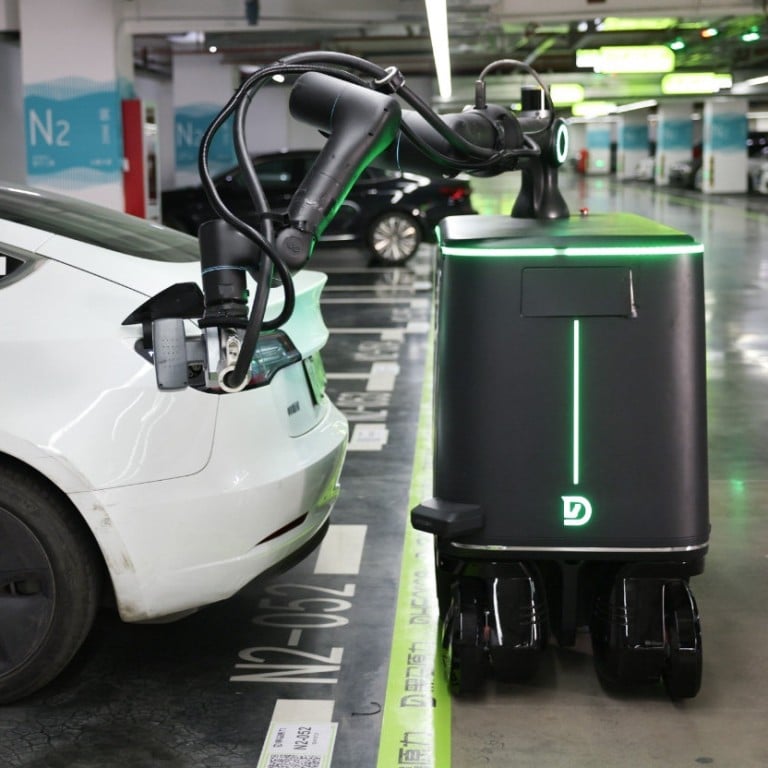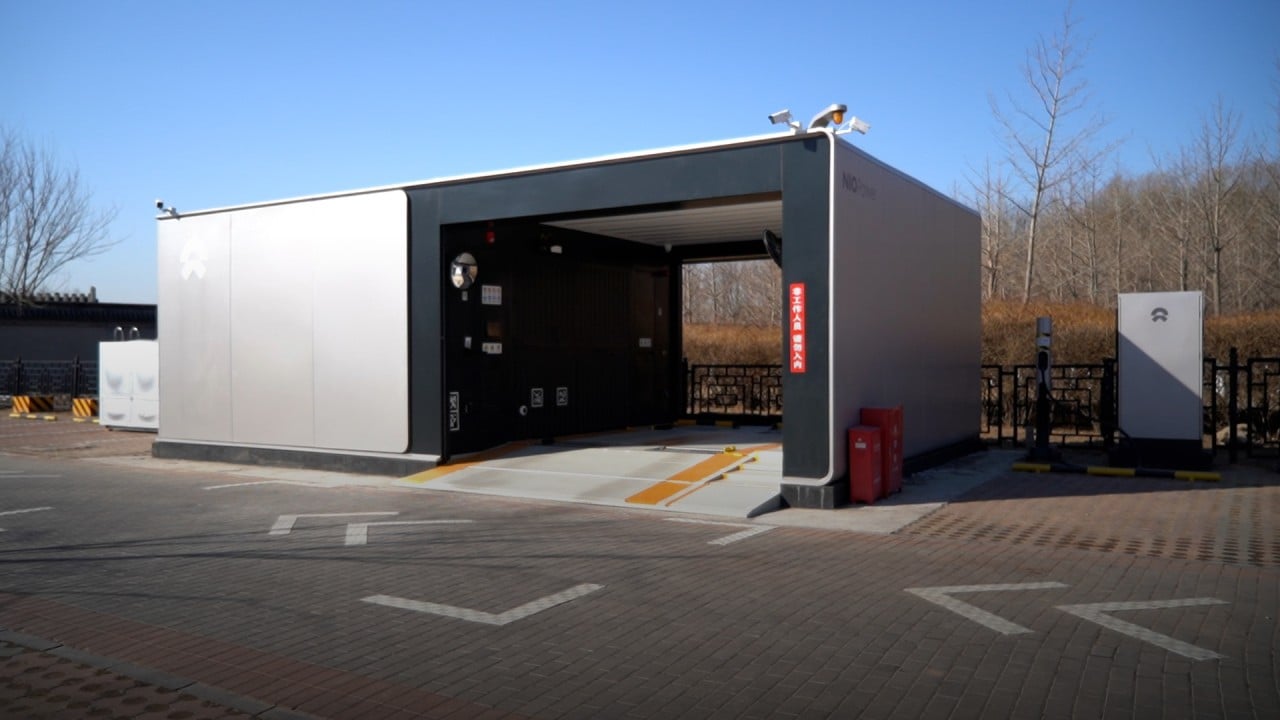
Electric vehicles: Chinese robot chargers start-up GGSN eyes investors, international expansion via new Hong Kong facilities
- GGSN, which is partly owned by New World Group, is in talks to set up research, product development and marketing facilities in Hong Kong
- Founder Kevin Deng is a speaker at the Hong Kong GreenTech Summit on February 26 that will kick off a week of events to promote green technology and finance
The two-year-old Shanghai-based firm, which is seeking to commercialise its autonomous EV charging robots, is in discussion with Hong Kong Science and Technology Parks Corporation, said Kevin Deng Xiaoguang.
“We pay a lot of attention to the Hong Kong market, which can be a platform for developing overseas markets,” he said in an interview.
“We have been conducting market research and developing partnerships in the Middle East, Europe, Southeast Asia and other regions, and hope to see further results on the ground this year.”
GGSN would welcome equity investment from supply chain, market development and energy supply partners, Deng said.
Majority controlled by its founders, the company’s shareholders include venture capital firms Sequoia Capital China and Linear Venture, as well as Hong Kong conglomerate New World Group, and Zhongguancun Development Group, a technology commercialisation unit backed by the Beijing municipal government.
The start-up has developed four mobile charging robots, launching pilot programmes to demonstrate their technical and commercial viability, Deng said. It has received orders of around 1,000 units so far.
GGSN has been demonstrating both autonomous and manually-operated mobile charging machines for a year at New World Group’s K11 shopping mall in the Xintiandi district of Shanghai.
Drivers who choose to use the autonomous service can park their cars in any parking space in the mall, scan a QR code and place their order through a mobile app. A robot about the size of a wheelie bin is then deployed as instructed by a cloud computing system to make its way to the car where the driver or an operator can plug it in.
For the non-autonomous option, a member of staff at the car park has to wheel the robot to the vehicle once the order is received.
The number of EVs in mainland China may surge 50 per cent to 30 million units by the end of this year, Deng forecast, and GGSN aims to serve a substantial portion of the fleet’s charging needs.
Sales of pure battery and plug-in hybrid cars grew 38.6 per cent to 7.43 million units last year, taking the total fleet to 20.41 million.
“Surveys have found that as many as 70 per cent of EV owners are not satisfied with the availability of charging facilities in China,” Deng said. “We aim to fill the gap by offering a mobile service so that drivers will no longer need to compete with other drivers for parking spaces that have access to charging points, and we will also offer quicker charging services.
“We have seen better-than-expected demand for our devices in office-retail complexes and highway service stations,” he said.
Besides selling the mobile charging devices, which can themselves be charged up during downtime, taking advantage of off-peak power tariffs, GGSN also offers its cloud platform and mobile software to support end-user engagement, orders management and equipment dispatch activities.
Its G30 entry model charger, which is 1.46 metres (4.66 feet) long, 1.2 metres (3.94 feet) high and weighs 880kg (1,940lbs), has 70 kilowatt-hours of storage capacity and is priced at 99,900 yuan (US$13,900). A 10-minute charge can provide 150km of driving distance.


